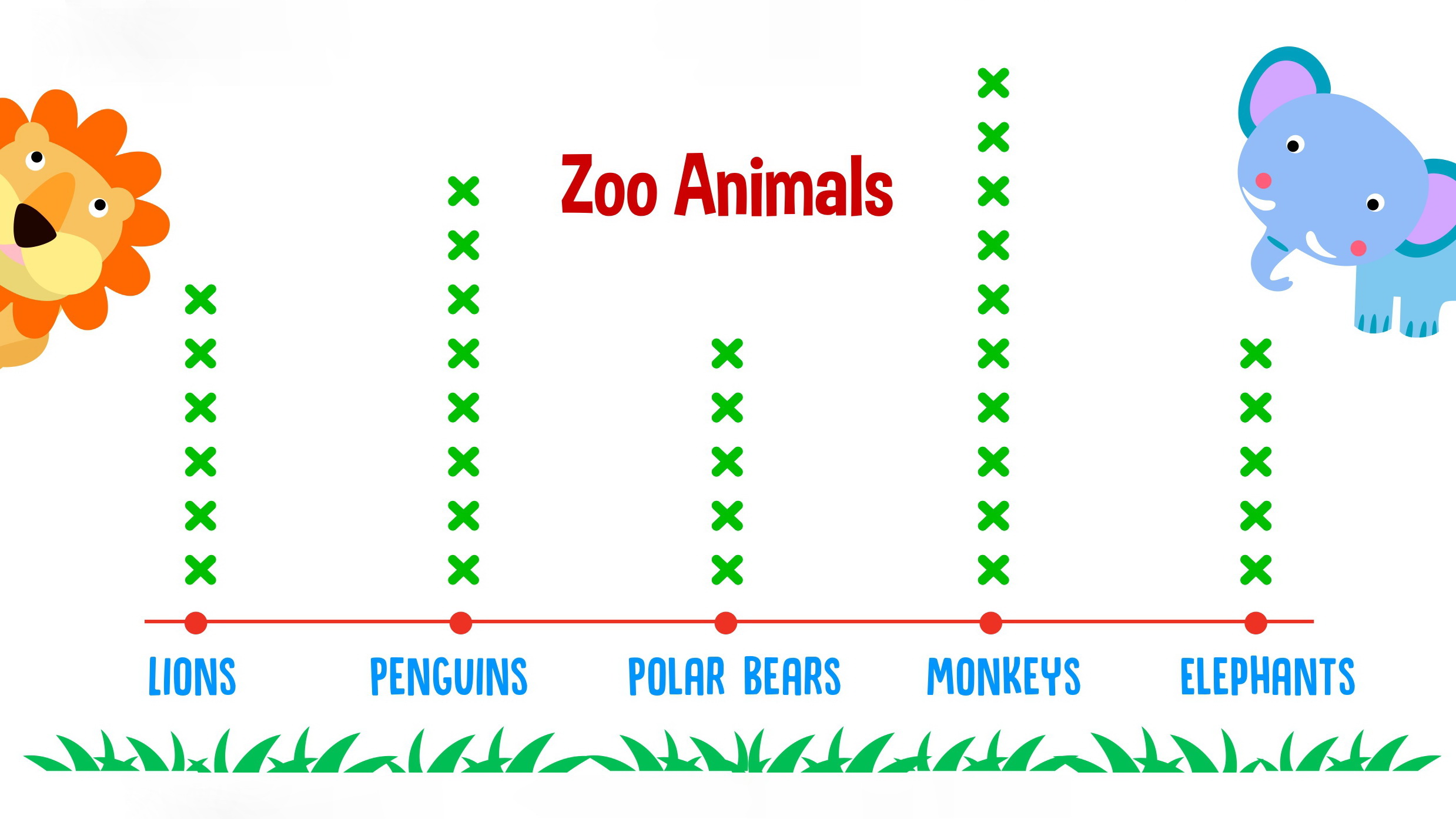Moral understanding Reading Worksheets for Ages 6-9
6 filtered results
-
From - To
Discover our engaging Moral Understanding Reading Worksheets designed specifically for children ages 6-9. These worksheets help young learners develop essential values, empathy, and ethical reasoning through age-appropriate stories and scenarios. Each activity encourages critical thinking, prompting students to reflect on choices and their impacts on others. Perfect for both classroom use and home learning, our resources feature vibrant illustrations and relatable content that captivate young minds. Foster a sense of responsibility and compassion while enhancing reading comprehension skills. Explore our collection to inspire moral growth and enrich your child's educational journey today!
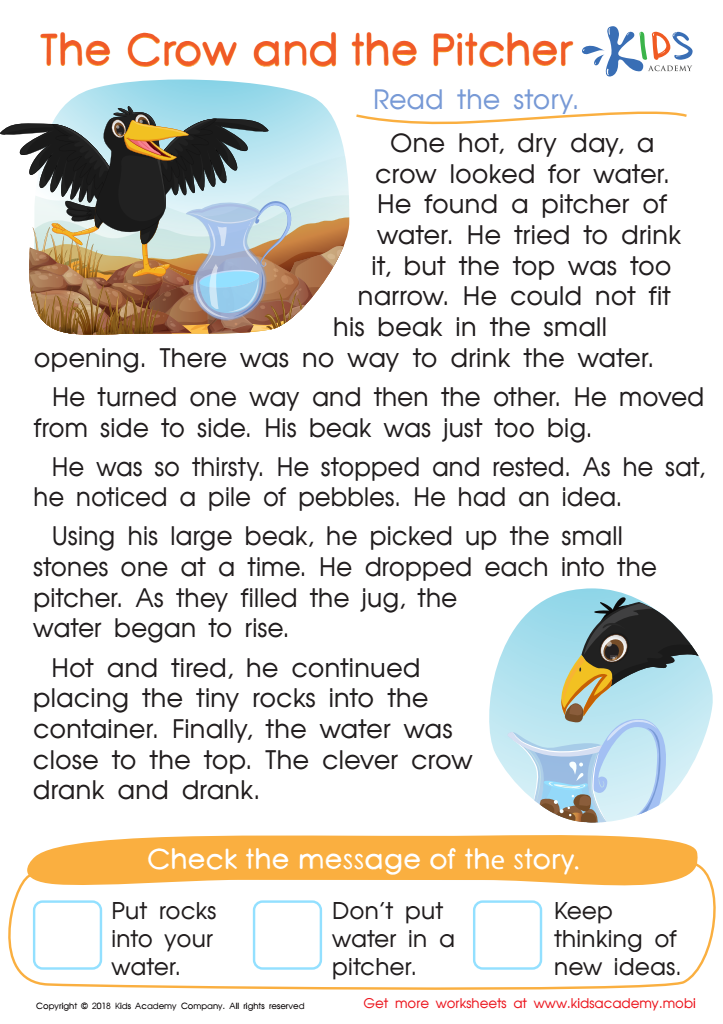

The Crow and the Pitcher Worksheet
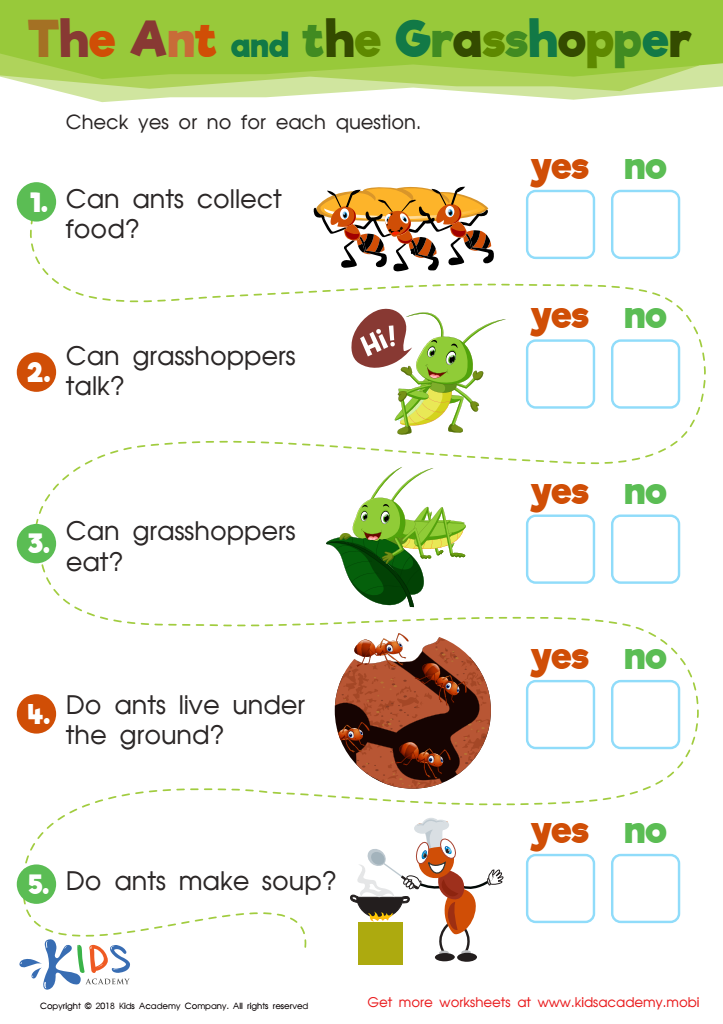

The Ant and The Grasshopper Worksheet
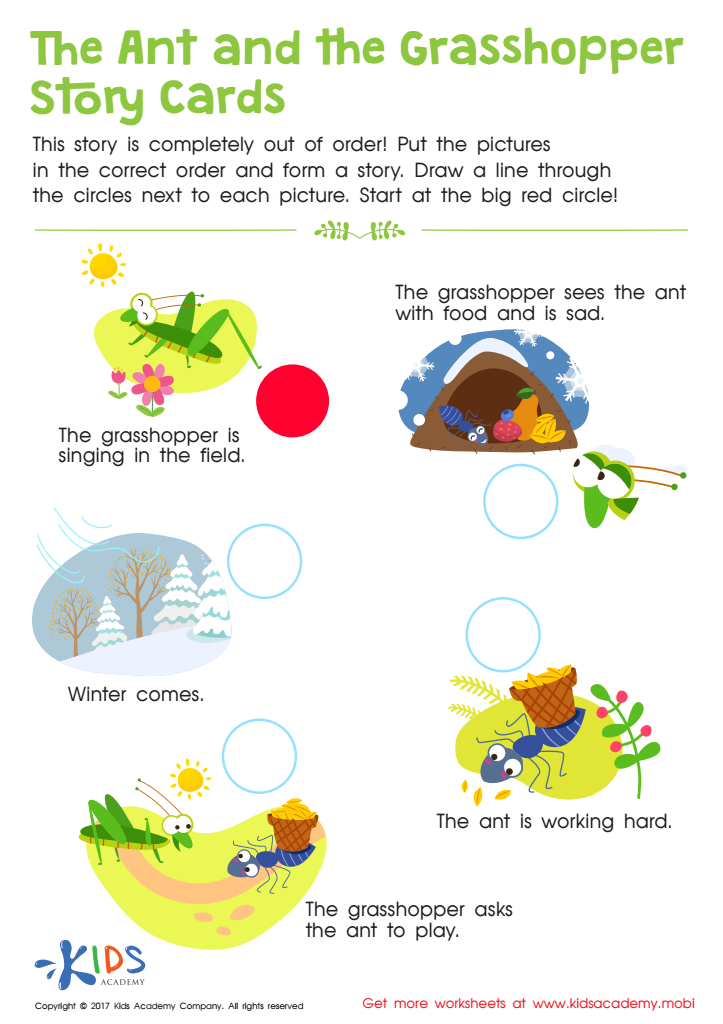

The Ant and The Grasshopper Worksheet
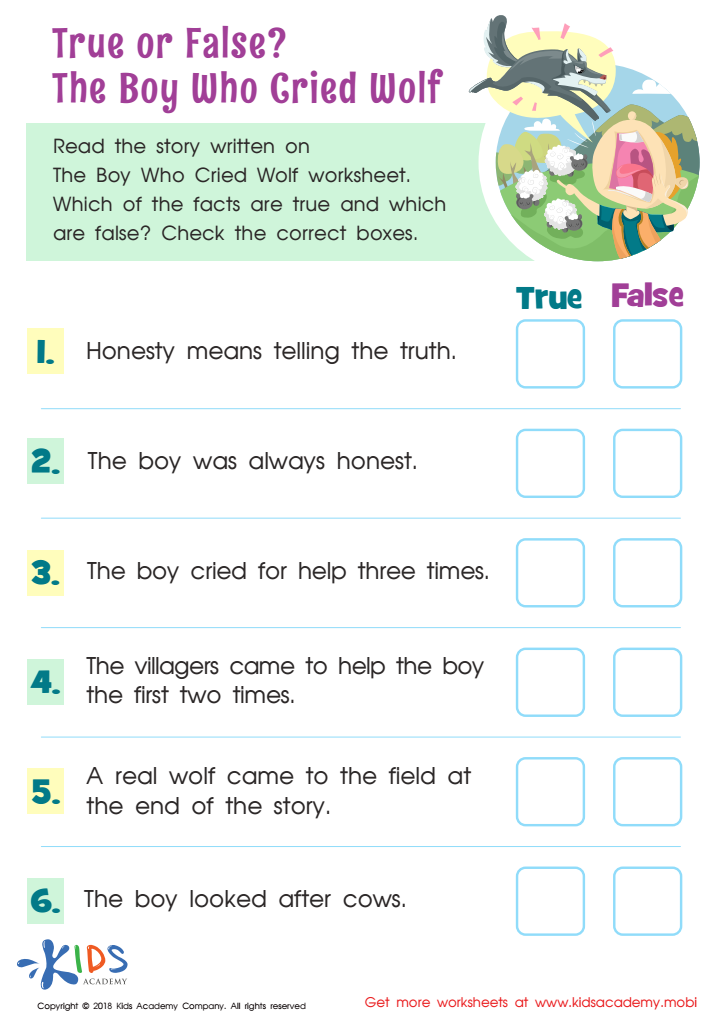

True or False? The Boy Who Cried Wolf Worksheet
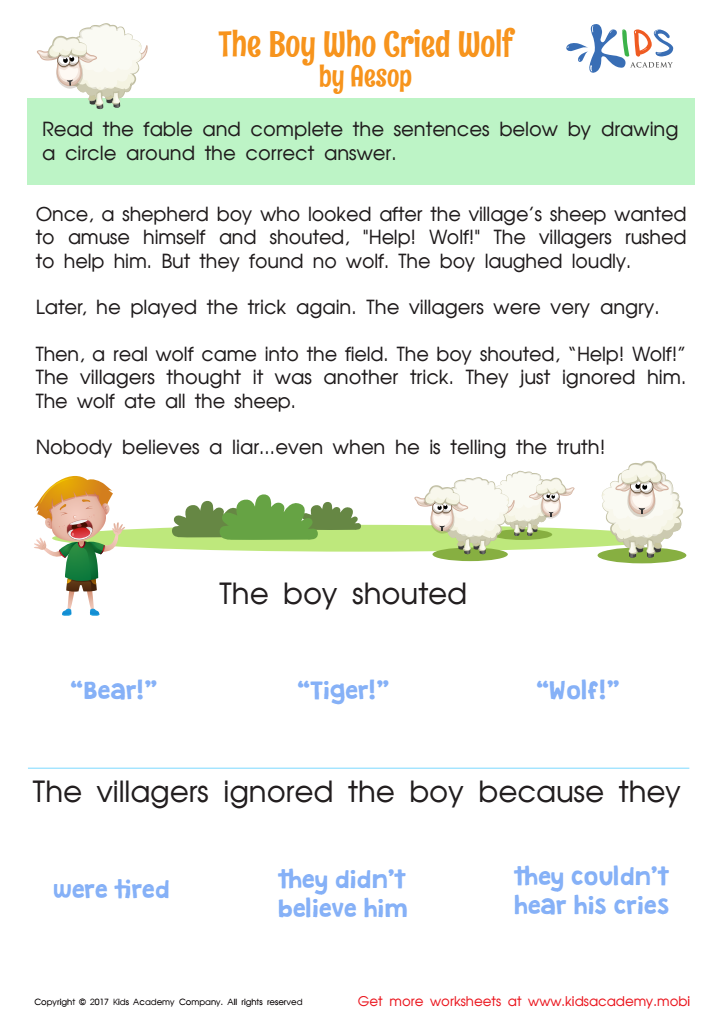

The Boy Who Cried Wolf Worksheet
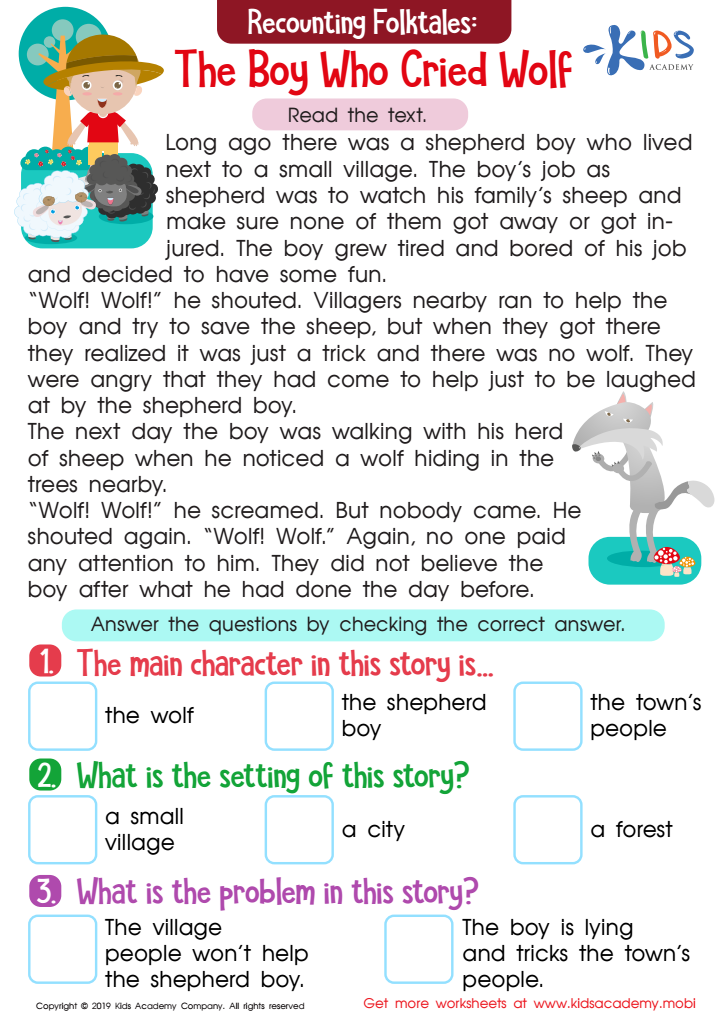

The Boy Who Cried Wolf Part 1 Worksheet
Moral understanding reading for ages 6-9 is crucial for children as it forms the foundation of their ethical and social development. At this age, children are learning to navigate complex interactions and relationships, making it imperative to foster empathy, fairness, and respect. Books focused on moral themes introduce children to diverse perspectives and scenarios that encourage critical thinking about right and wrong.
Parents and teachers play vital roles in guiding children’s comprehension of these narratives, helping them to connect the stories to their own lives and decisions. Engaging with moral dilemmas presented in literature allows children to reflect on their own values and the consequences of their actions. Additionally, such readings can stimulate important conversations about integrity, kindness, and responsibility, enhancing children's communication skills and emotional intelligence.
By nurturing moral understanding through reading, educators and parents empower children to become compassionate individuals who can contribute positively to society. Building these skills early on paves the way for lifelong ethical decision-making and stronger interpersonal relationships, ultimately benefiting the child's personal and social development. Observing and discussing moral themes in literature equips children with the tools they need to face real-world issues thoughtfully and ethically.

 Assign to My Students
Assign to My Students





